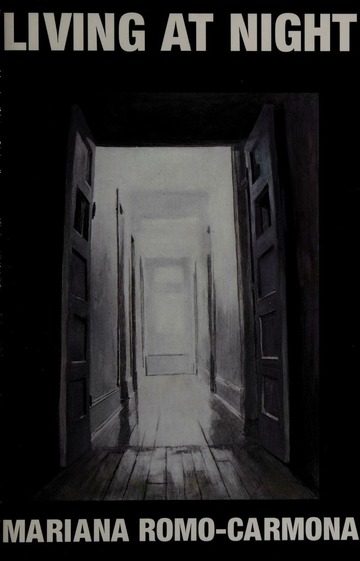Review of Living at Night by Mariana Romo-Carmona

Living at Night
Mariana Romo-Carmona
Spinsters Ink, 1997, 257 pages
$8.00 (used)
Reviewed by Mel Oliver
Living at Night brings us into the intimate and brutal world of Erica García, a young, working-class Puerto Rican lesbian navigating life in a white, suburban Connecticut institution. Through clear, honest prose, the novel exposes the violence of care systems, where patients are heavily sedated—their bodies regulated and recorded with cold precision—yet remain defiantly human. Erica’s role as a worker within this system reveals not just the cruelty of institutional control but also the ways women of color survive, adapt, and quietly resist within oppressive structures. Though Erica cannot save everyone, she comes to a pivotal understanding: she can reclaim her own life.
This story deeply resonated with me, as two of my aunties spent decades working in hospice and state-run institutions similar to the one described in the novel. Their labor—quiet, often invisible, and profoundly gendered—carries emotional weight and historical silence. Reading about Erica felt like reading about them, and I couldn’t help but wonder what liberation they might have imagined for themselves had they encountered this book, not just in terms of sexuality, but in terms of self-worth, bodily autonomy, and the possibility of a life beyond survival. One of my aunts, a Christian lesbian, has endured abuse in both heterosexual and same-gender relationships. I see now how she may have clung to her work not just out of duty, but in search of the care she herself was denied, perhaps imagining that love and tenderness might be found in the act of caregiving. My other aunt, who left an abusive marriage and retired from institutional work, may have found a rare form of agency and control in that setting, something the rest of her life never offered.
I grieve the silence between them, the solitude they endured. If only they had known their shared pain could be a bridge, not a wall. This novel is more than fiction—it is a mirror for the generations of women who have labored, loved, and lost in silence. It invites us to imagine what liberation might look like for the caregivers, not just the cared-for. And it insists that working-class women, especially queer women of color, deserve stories that reflect their complexity, their courage, and their right to be seen.
Mel Oliver is a Black Indian (Choctaw heritage with Munsee roots), environmental educator, poet, researcher, and lover of crafts, dogs/dingos, and music! https://melsorbit.carrd.co/
"Empowerment comes from ideas."
― Charlene Carruthers
"Your silence will not protect you."
— Tourmaline
"Gender is the poetry each of us makes out of the language we are taught."
— Leila Raven


